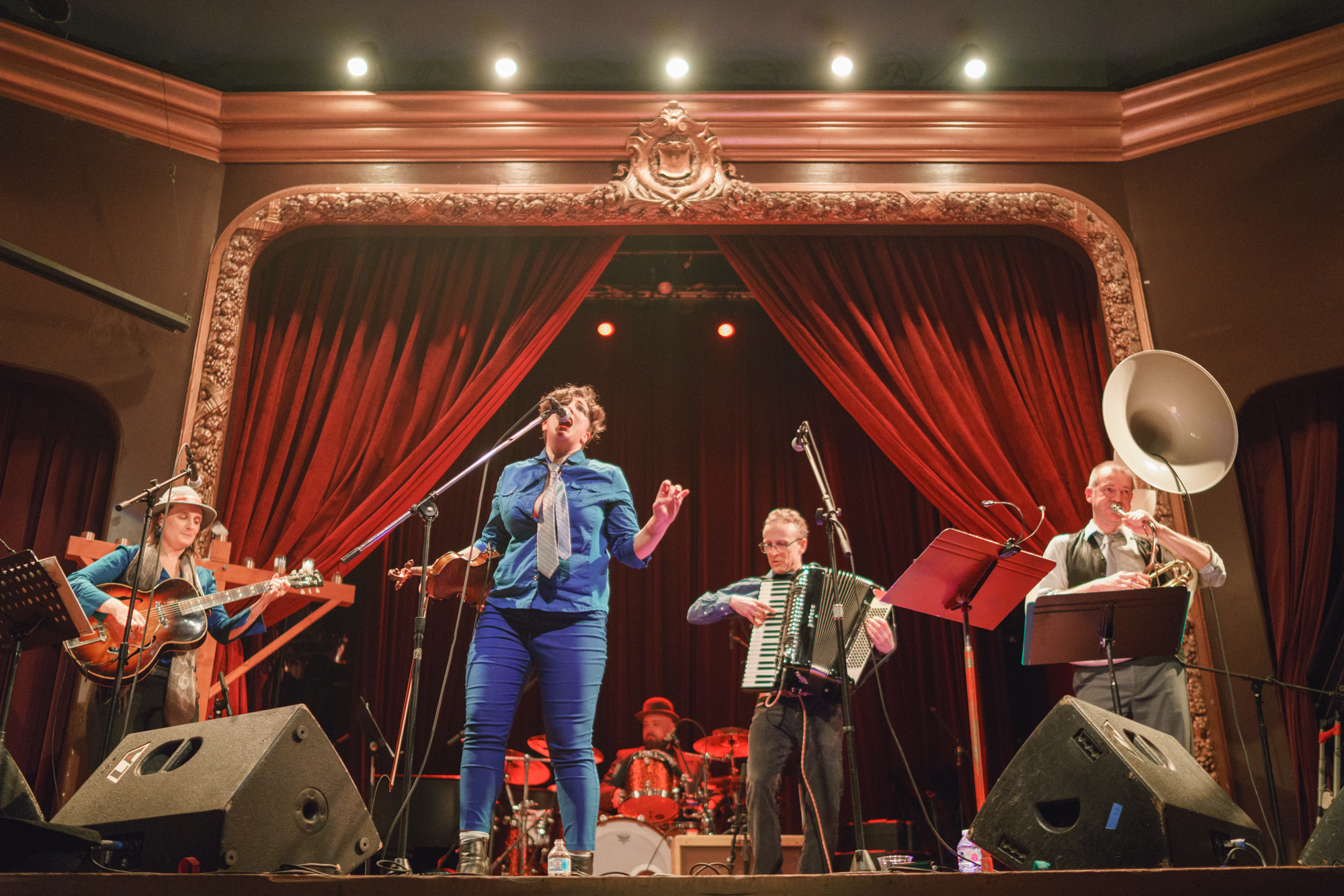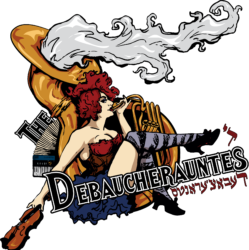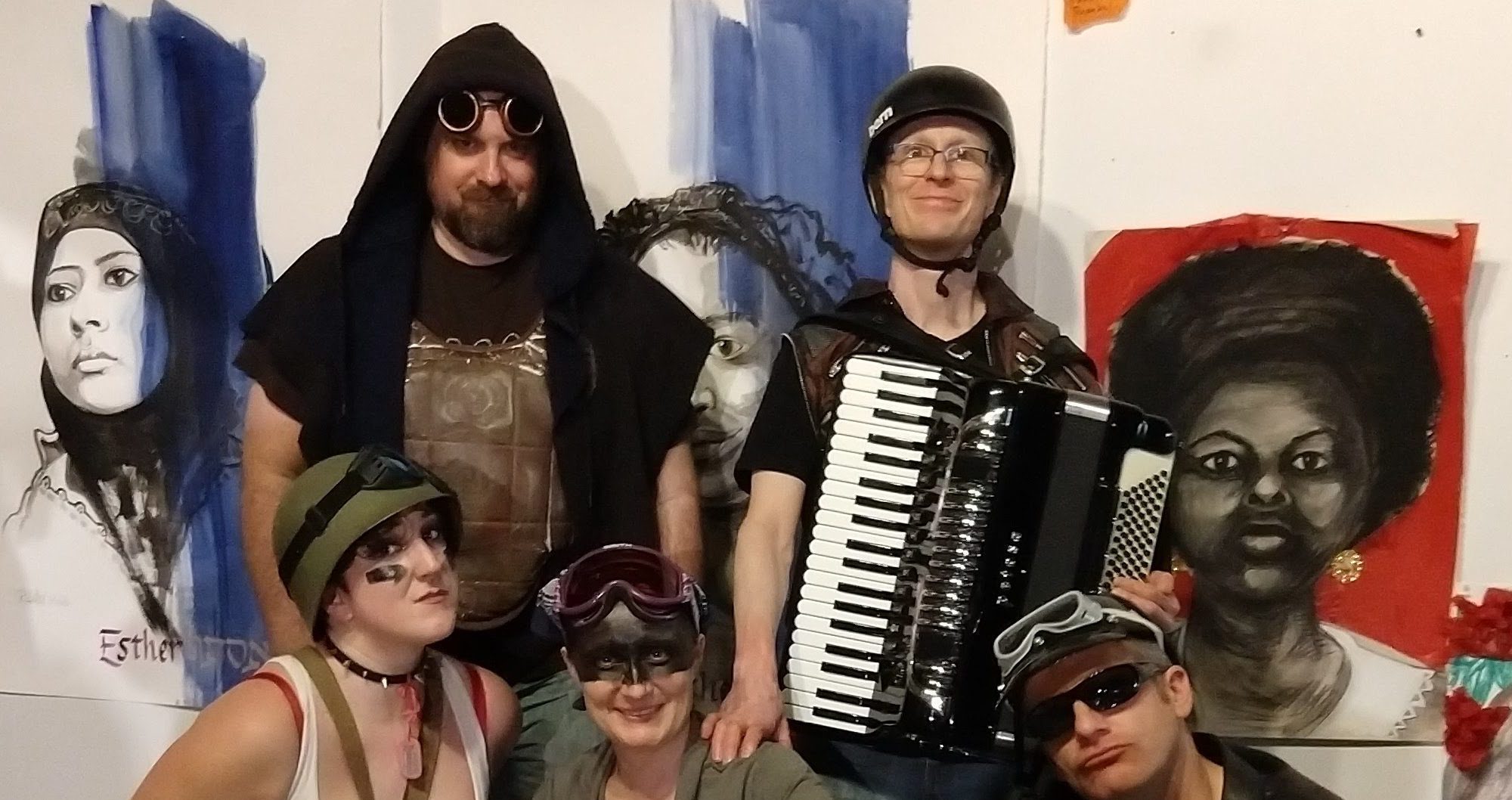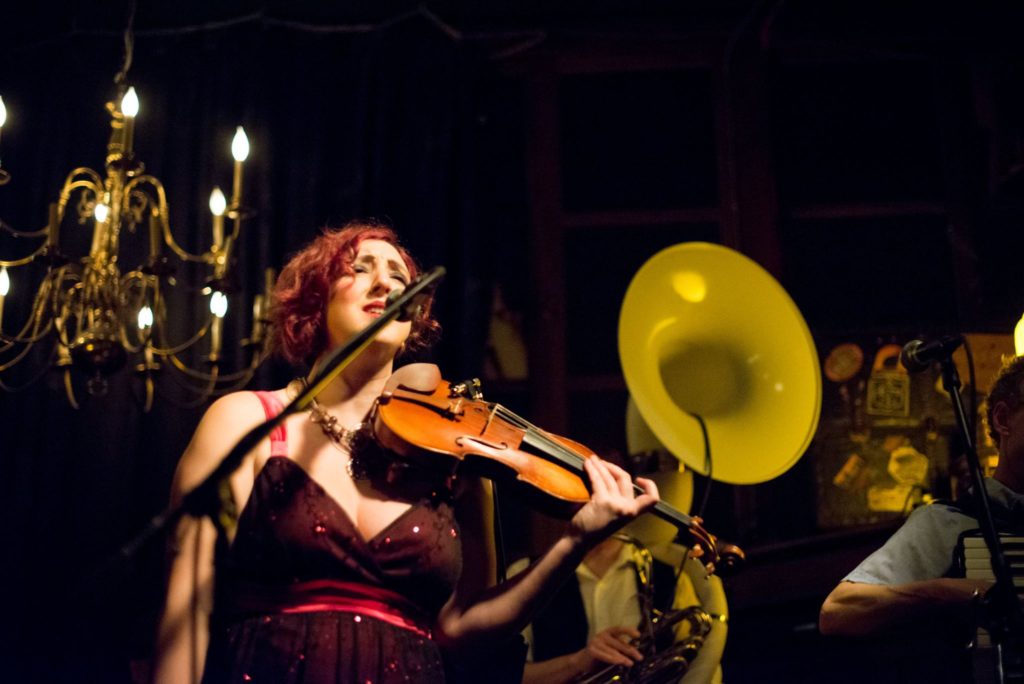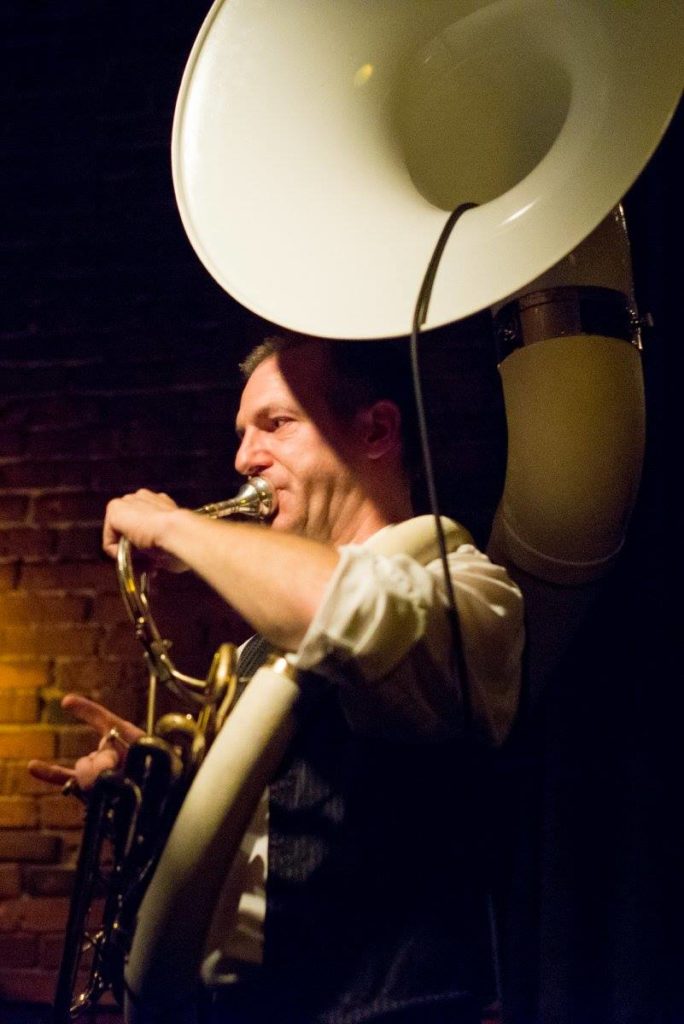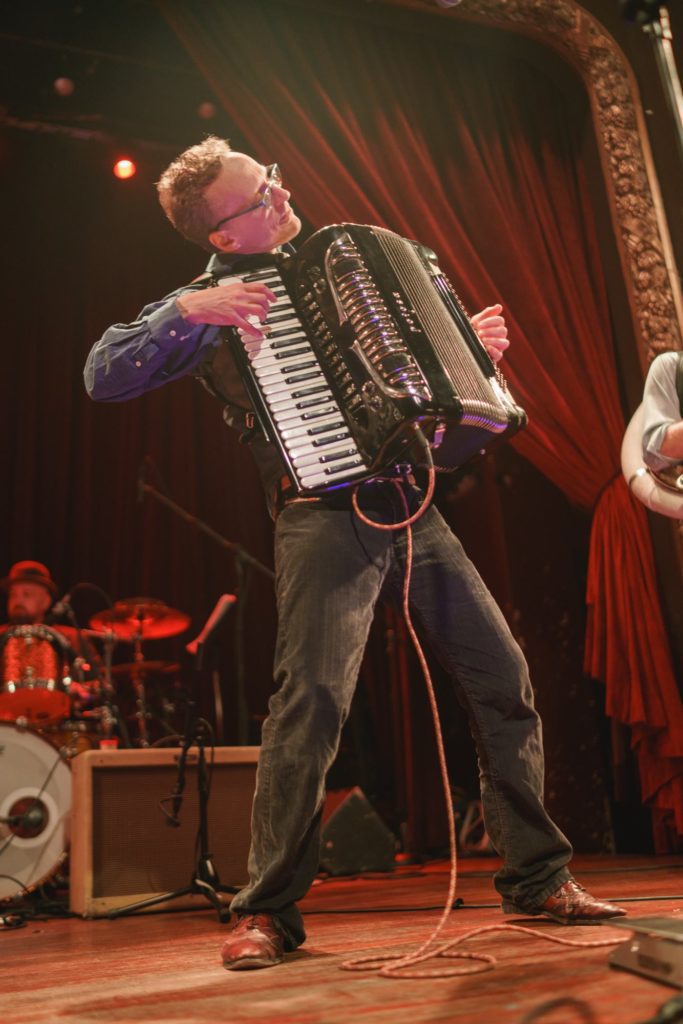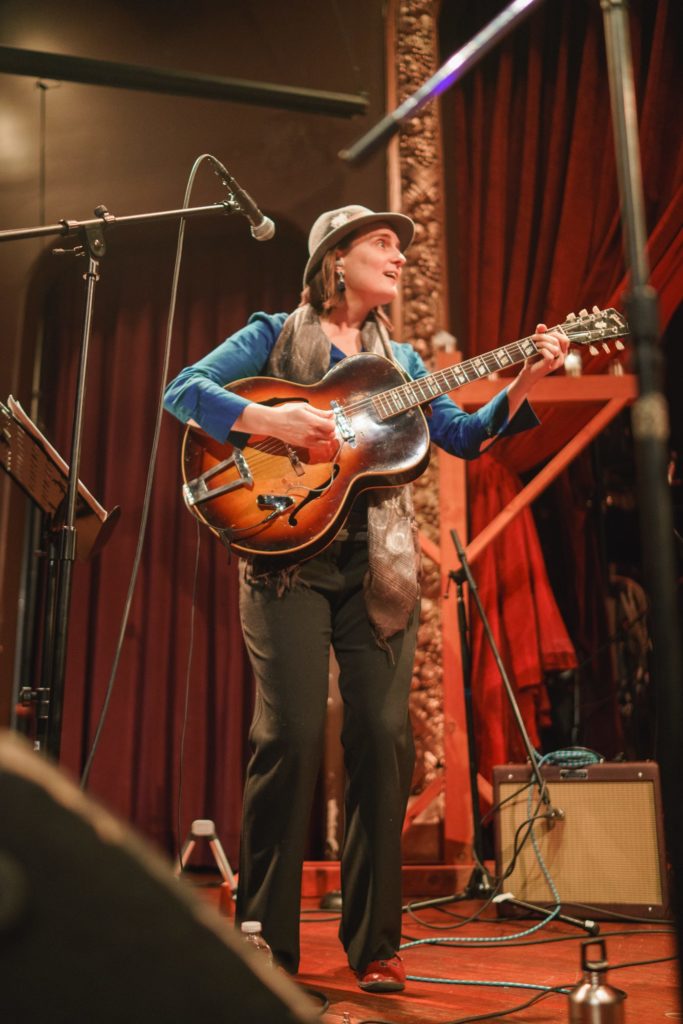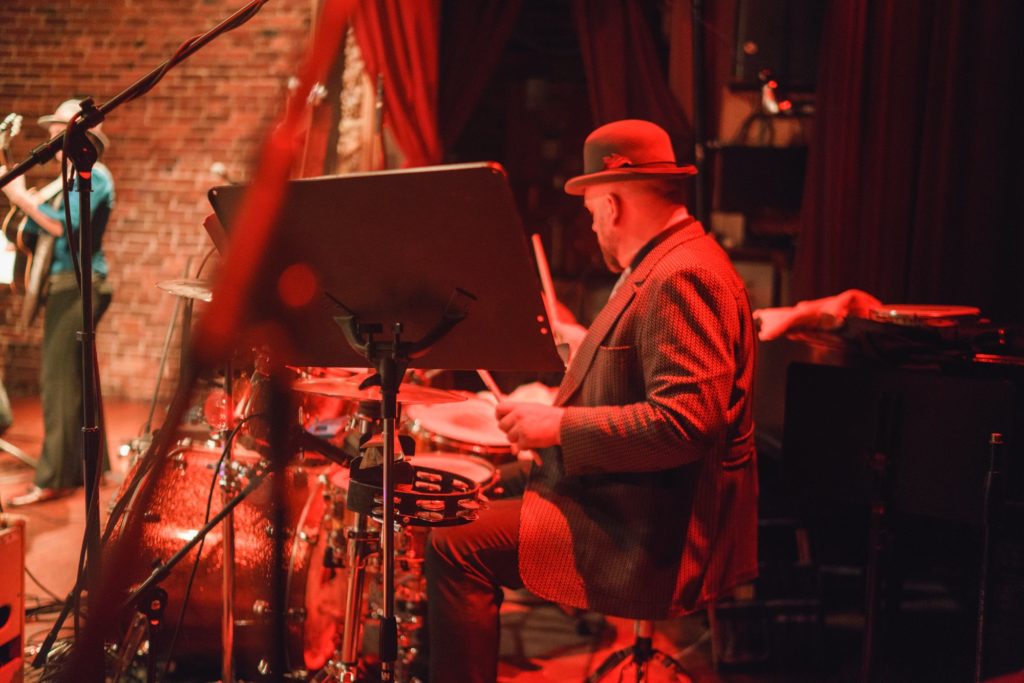“Equal parts Typhoon & Tenderness.” –Ivan Molton, EuroDanceParty USA
“It’s too bad I didn’t know about The Debaucherauntes sooner…. [bringing] punk musical elements, sensibilities, and identity to […] klezmer” –Michael Croland, Oy Oy Oy Gevalt
The Debaucherauntes are a cabaret-punk klezmer band based in Seattle, Washington.
Rooted in traditional Klezmer and Yiddish song, the Debaucherauntes find inspiration from funk, cabaret, electroswing, vaudeville, electronica, late Romantic orchestras, and even occasional trip hop and hip hop beats. Their music pulls in skeptic and believer alike–laughing and crying, singing and dancing–through Waitsian whiskey-soaked singalongs, blistering solos, powerful dance grooves with tilt-a-whirl tempos, crystalline chamber pop, and emotionally devastating power ballads. The style of the music pairs well with Daniel Kahn, Dobranotch, and The Klezmatics as much as it does Gogol Bordello, Postmodern Jukebox, and Amanda Palmer. Even the most regular audiences never quite know what to expect.
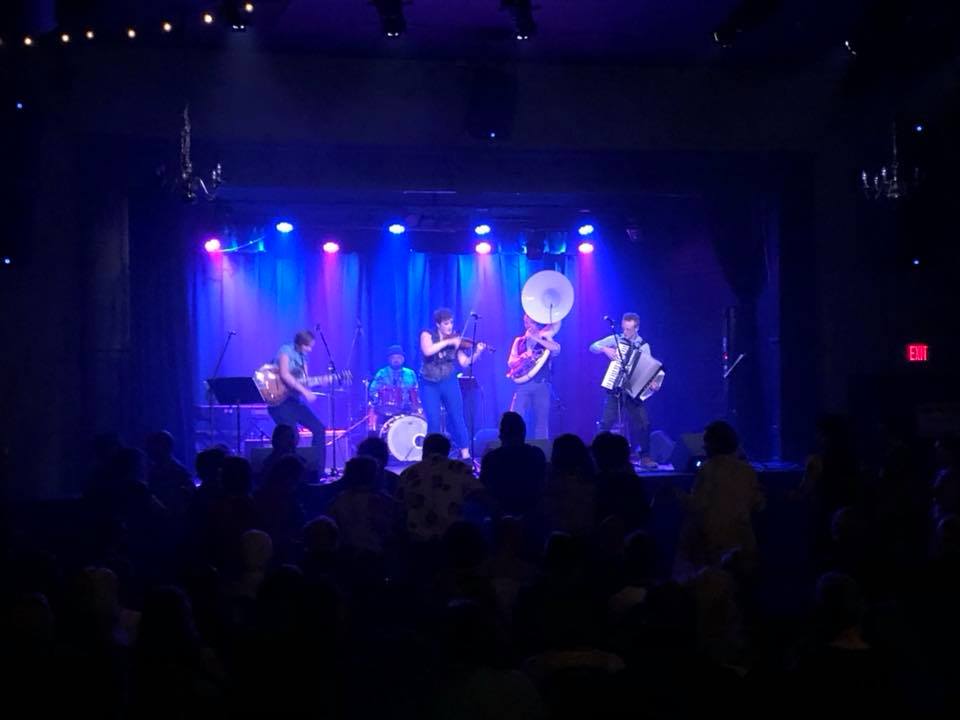
After starting out in 2013 as just a local Seattle mainstay–in a historically tiny klezmer scene–the band’s 2015 Kickstarter for their debut studio album Different Parade featured an entire brass band and blew away expectations, The positive reception for the album spawned their first tour down the West Coast. Since then, the group has become a key pillar in a new wave of PNW klezmer revival, was interviewed for Michael Croland’s 2018 book Punk Rock Hora, and was featured as part of the Pacific Northwest explosion of new Klezmer bands in the Spring 2019 edition of Jewish in Seattle magazine.
They have continued to visit audiences in LA, the SF Bay Area, Vancouver BC, Portland, and myriads of small towns in between and around the greater Pacific Northwest and Canada. Throughout the band’s travels, they have shared the stage with luminaries including Daniel Kahn (Berlin), Oktopus (Montreal), Jinta-La-Mvta (Tokyo), Geoff Berner (Vancouver), Mostly Kosher (LA), Diego’s Umbrella (SF), and Professor Gall (Portland, OR).
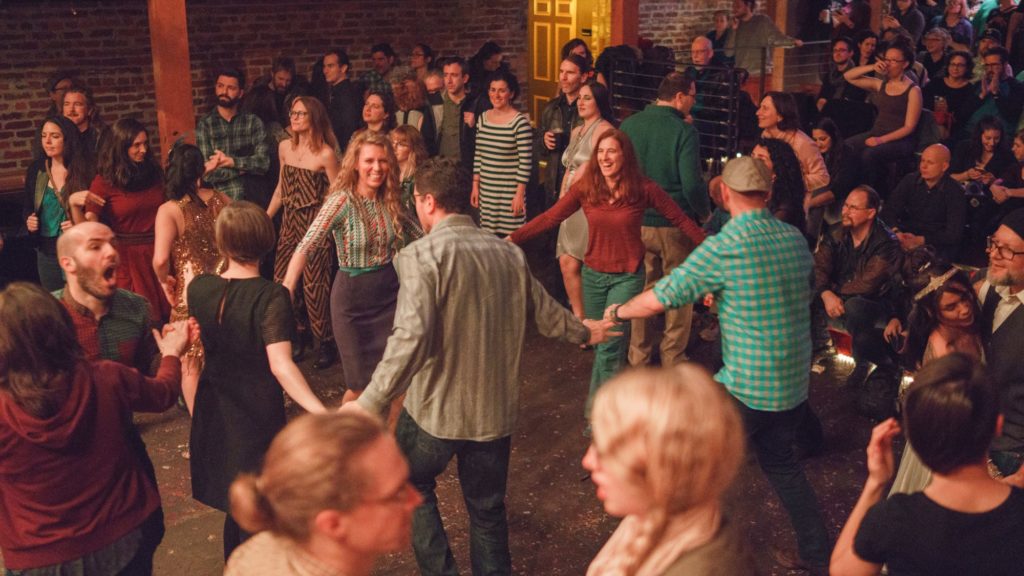
Powerhouse vocalist & violinist, Mai Li (Miles) Pittard, the group’s primary writer/arranger, studies actively with current global klezmer and Yiddish song luminaries Daniel Kahn & Josh Waletzky (Yiddish songwriting), Dan Blacksberg, Josh Horowitz & Pete Sokolow (arranging), Cookie Siegelstein & Mark Kovnitsky (violin), and Sasha Lurje and Judy Bressler (voice)–and she swept KlezKanada’s first Krechts Factor Yiddish Song Competition in 2017 with a performance of the title track from their 2015 debut album Different Parade. Miles comes from a deep and broad background of classical & theatrical composition and performance, punk, blues, electro-swing, cabaret, and vaudeville.
Jerry Neufeld-Kaiser (sousaphone) and Kai Strandskov (drums) bring Balkan and Romani brass band backgrounds to the mix. Scott Adams (accordion) brings his unique vision to the arrangements–drawing from his multi-instrumentalist perspective and backgrounds in composition, songwriting, and metal. Elena DeLisle (guitar) hails from Calentano, Swing and Americana–bringing in the backbeat and the style points in Sephardi tunes.
History
From the depths of a close dressing room backstage of a local fringe production of Woyzeck–a production famously scored by Nick Cave, Tom Waits, and other crusty, questionable artistic types–Miles sat with a band of four musicians, preparing for their one scene as part of her score of the production: playing on stage as a live band in an extremely questionable establishment,
Futzing with costumes and kvetching through most of show in the firetrap of a changing area stuffed with wigs, graffiti, props, and errant corsets, the musicians complained over whiskey about failed connections–and ultimately asked themselves: if this fake band were a real band, what would our band name be? Their fake band consisted of a fiddle, a bass, a guitar, and an accordion. It played a sultry mix of klezmer, crusty Waitsian blues, and dark neo-vaudvillian doom Americana folksongs about life gone astray. They were playing in a German bar of questionable drunks, waitresses with special services, criminals between sentences, and off-duty soldiers who could become killers at any given moment.
What kind of a band would play in a bar like that?
The first name to stick was The Debaucherauntes.
